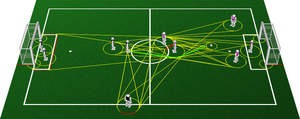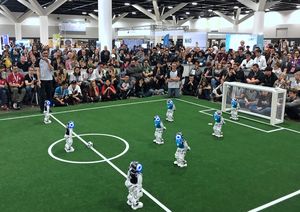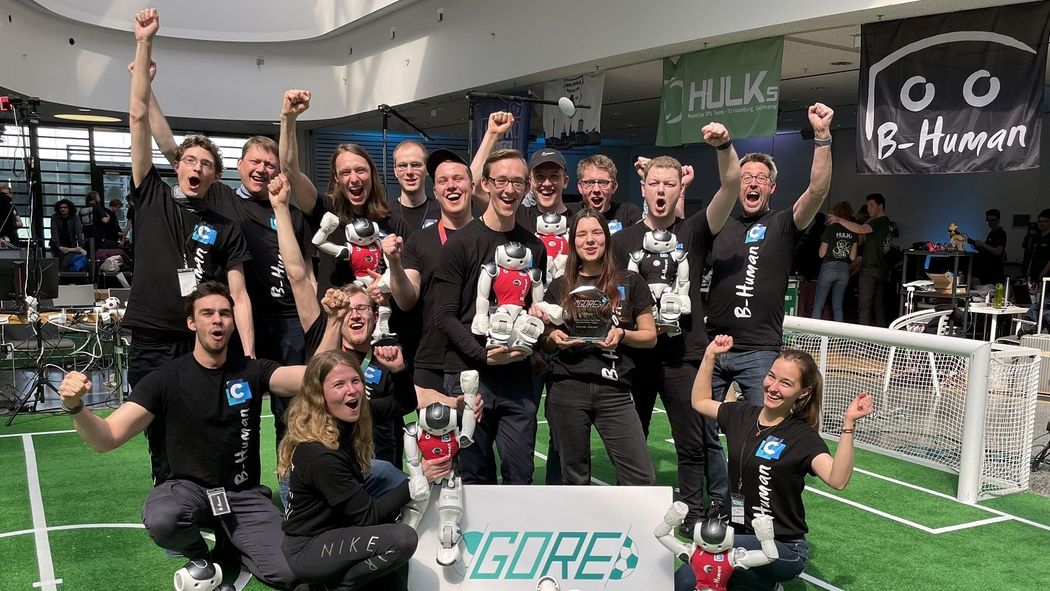
B-Human - Humanoid Sports Robotics
Soccer is exciting — for computer scientists as well. The game inspires and offers a scenario for the development of autonomously acting, intelligent robots that are as vivid as they are complex.
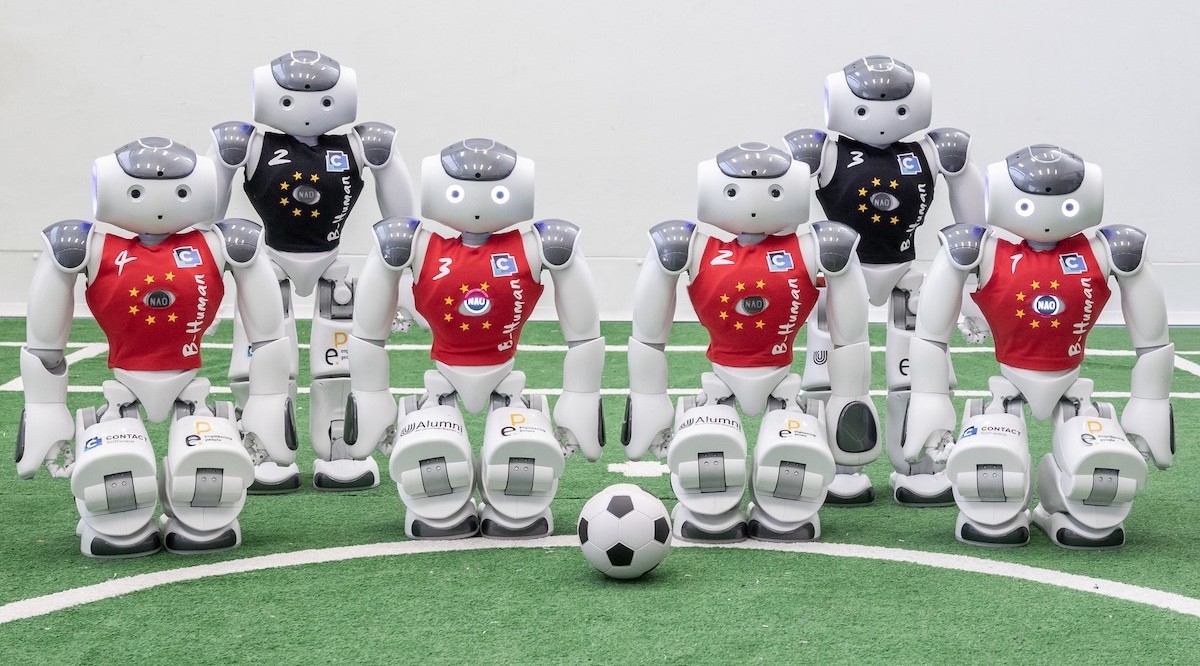
Why Soccer?
Soccer is a team sport in which eleven athletes strive for a common goal: To win the game. Although the rules of the game are known, the team must constantly react to unknown parameters determined by the actions of the opponent on the field. What tactics will he use, how will he react in certain situations, what might be the next pass? None of this can be predicted, so the team must adapt its game in real time to the challenges that arise.
Soccer as a concrete and complex game scenario is an ideal training ground for computer scientists developing autonomous intelligent robots. It contains many of the elements that drive research in robotics and artificial intelligence. The dynamic environment, real-time state change, distributed control, and sophisticated sensor readout make the game more challenging (and fun) than a chess match.
The B-Human project is based on a cooperation between the DFKI Cyber-Physical Systems research area and the Department of Mathematics and Computer Science at the University of Bremen and serves both teaching and research purposes. The project is an excellent opportunity for students to learn software development in practice under the guidance of researchers from DFKI and the university.
RoboCup - Soccer is More Than a Game!
The latest developments are used in annual competitions organized by the international scientific RoboCup initiative to promote research in artificial intelligence and robotics. The overall goal is to further develop robots that interact with their environment. The competition format allows for a direct comparison of different approaches and is divided into different leagues with different research focuses.
B-Human plays in the Standard Platform League (SPL). In this league, all teams use the same hardware, the bipedal robot NAO from Softbank Robotics. But the software makes all the difference! B-Human makes the source code of its software openly available after each world championship to promote the international development of intelligent robots and to offer the other teams a way to improve their systems.
Challenges - from Sensor Data to Decisions
Robot soccer is a challenge that puts five research areas at the heart of B-Human's software development:
- External perception: The image processing of sensor data, the recognition of objects in 3D space and their orientation.
- Internal perception: Determining the position of one's own body and all limbs in a three-dimensional space.
- Probabilistic modeling: The modeling of the player environment, e.g., based on the calculation of probabilities.
- Movement: Looking around, running, shooting, and getting back up after a fall.
- Behavior: Make decisions based on player's own information and that of teammates.
The Ultimate Goal: Transfer to Secure and Reliable Systems
B-Human's ultimate project goal is to develop autonomous robotic systems that operate safely and reliably. All achievements on the way to this goal can be transferred to many other application areas - from space robotics to search and rescue applications.
A successful example of such a technology transfer is the Bremen Ambient Assisted Living Lab (BAALL) of the DFKI: Here, the software architecture of an intelligent wheelchair is based on the code of B-Human.
International Awards in the Standard Platform League
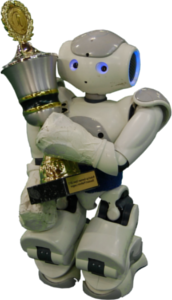
In 2009, B-Human was accepted into the Standard Platform League of the international RoboCup initiative, which promotes research on autonomous multi-robot systems by organizing various robot soccer events.
B-Human participates with great success in the German Open, European Open and RoboCup World Championships: world championship victories in 2009, 2010, 2011, 2013, 2016, 2017, 2019, 2021, 2022, 2023, 2024 and 2025! In 2012, 2015 and 2018 the team finished second, in 2014 third.
At the German Open (German Open Replacement Event, or GORE, since 2022), B-Human has won every year from 2009 to 2025, except for 2018, when they finished third.
A sports success story that Bremen can be proud of.
Contakt
Dr. Thomas Röfer
Thomas.Roefer@dfki.de
Tel: +49 421 218 64200
Dr. Tim Laue
Tim.Laue@dfki.de
Deutsches Forschungszentrum für
Künstliche Intelligenz GmbH (DFKI)
Cyber-Physical Systems
MZH
Bibliothekstr. 5
28359 Bremen
Deutschland
Cartesium
Enrique-Schmidt-Str. 5
28359 Bremen
Deutschland
